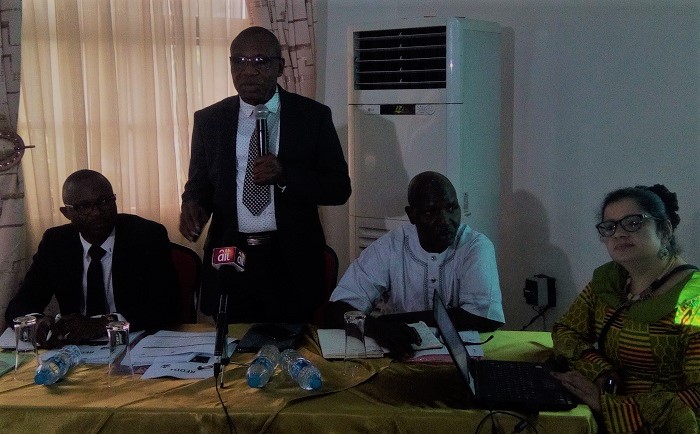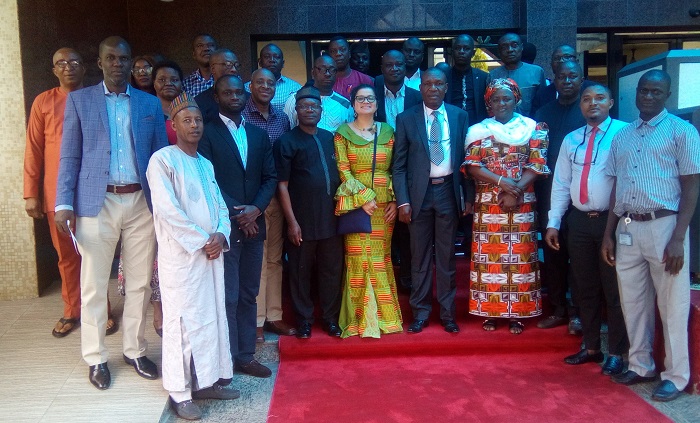Nigeria has adopted the platform for consultation to integrate social and environmental concerns into the REDD+ policy-making process.

REDD+ implies Reducing emissions from deforestation and forest degradation and the role of conservation, sustainable management of forests and enhancement of forest carbon stocks in developing countries.
At a daylong forum in Abuja on Thursday, October 25, 2018, a gathering of stakeholders validated the Strategic Environmental and Social Assessment (SESA) & Environment and Social Management Framework (ESMF) document for the nation’s REDD+ Readiness.
To have a national SESA, stakeholder engagement interactive model was adopted for identification of potential environmental and social impacts related to REDD+ programmes in analysis of safeguard risks and impacts.
Essentially, the SESA offers a platform for consultation to integrate social and environmental concerns into the policy making process of the REDD+. It is to be complemented by an Environmental and Social Management Framework (ESMF), which establishes the principles, guidelines, and procedures for reducing, mitigating, and/or off-setting potential risks and enhancing positive impacts and opportunities, and otherwise guiding potential investments towards compliance with relevant safeguards.
Speaking on the ESMF for the Nigeria REDD+ Readiness, Prof Francis Bisong, the SESA Team Leader, stated that the purpose of the framework is to establish effective approaches and methodologies for the environmental and social assessment, under the REDD+ mechanism.
Besides specifying appropriate roles and responsibilities of stakeholders for managing and monitoring environmental and social concerns, he added that the idea is also to devise a needs assessment to determine training, capacity building and technical assistance needed to successfully implement the provisions of the ESMF.

While taking place at different levels from national to local, the implementation of the ESMF, noted Bisong, is based on the existing government structure with the Federal Ministry of Environment anchoring the programme.
According to him, the REDD+ Secretariat will maintain contact with the sectoral institutions to update information and documentation as needed to meet the objectives of the ESMF.
While shedding some light on Resettlement Policy Framework (RPF), Ezekiel Ariyo of DARASHAW AND ECMC Engineers stressed that RPF is prepared inline with the World Bank Resettlement Policy (OP 4.12) to address social impacts of REDD+ projects which may result to involuntary resettlement, loss of property or disruption that affect livelihoods and restriction of access to forest resources.
He emphasised that involuntary resettlement should be avoided or minimised where feasible, otherwise it (resettlement activities) should be conceived and executed as sustainable development programmes, providing sufficient or equal alternatives and compensation through the adequate consultation and participation of those affected.
“Displaced persons or Project Affected Persons (PAPs) should be assisted in their efforts to improve their livelihoods and standards of living or at least to restore them, in real terms, to pre-displacement levels or to levels prevailing before the beginning of project implementation,” he stressed adding that, for RPF to be done, there must be due consultation, training and capacity building.
Speaking on “Process Framework (PF) for the Implementation of the National REDD + Programme in Nigeria”, Felix Takim noted that apart from supporting a no-regrets approach to REDD+ activities and guiding the development of regional/national structures to support the forestry sector, the purpose of the PF for the REDD+ programme to provide policy options to guide the development of the programme at all levels.
“The PF should therefore incorporate UNFCCC (United Nations Framework Convention on Climate Change) decisions and IPCC (Intergovernmental Panel on Climate Change) good practice guidance for determining the implementation of REDD+ activities,” he said.
